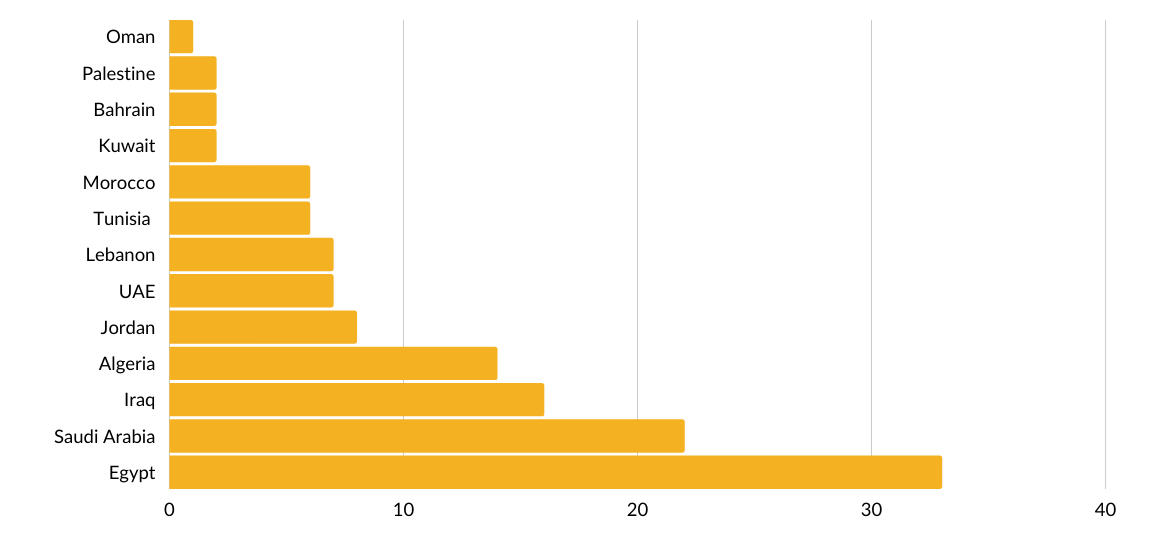
Times Higher Education (THE) released its Arab University Rankings. The list ranks 125 universities that have issued more than 500 research publications between 2016 and 2020. Another 30 universities did not meet the eligibility criteria to receive a rank and are listed with “reporter” status.
The Arab University Rankings include universities and institutions from 14 countries across the Middle East and North Africa. Egypt and Saudi Arabia were the most represented countries on this list with an impressive 31 and 22 universities, respectively.
The top ten:
Four Saudi universities ranked among the top five, with King Abdulaziz University taking over first place. The university offers students free education, and free housing, in addition to unique courses like marine science, meteorology, and astronomy. Qatar University ranked second. The institution has 20 PhD programmes and offers courses in both Arabic and English. King Abdullah University of Science and Technology (KAUST), one of the youngest universities on the list, came in third place. KAUST offers courses focused on science and technology like bioengineering, earth, and computer science. Also, Prince Mohammad Bin Fahd University and King Fahd University of Petroleum and Minerals ranked fourth and fifth on the list with close overall scores of 90.1 and 89.7.
From the UAE, two universities made it to the top ten; Khalifa University in sixth spot and United Arab Emirates University in seventh. With King Saud ranking eighth, a total of five Saudi universities populated the top ten chart for this year’s Arab University Rankings. From Lebanon, the American University of Beirut made an appearance in ninth place. Lastly, Zewail City of Science and Technology concludes the list in tenth place, adding another Egyptian University to the top ten.

Number of universities per country
THE Arab University Rankings Methodology
The Times Higher Education Arab University Rankings uses slightly different performance indicators than THE World University Rankings to account for the region’s unique characteristics. Find the 16 recalibrated indicators grouped into five areas below:
1. Teaching – 33%
– Teaching reputation: 20%
– Academic staff-to-student ratio: 4%
– Doctorates-awarded-to-undergraduate-degrees-awarded ratio: 2.5%
– Doctorates-awarded-to-academic-staff ratio: 5%
– Institutional income per academic staff: 1.5%
2. Research – 33%
– Research reputation: 25%
– Research income per academic staff: 3%
– Publications per staff: 5%
3. Citations and research influence – 20%
4. International outlook – 8%
– International students: 2%
– International staff: 2%
– International co-authorship: 2%
– Collaboration within the Arab world: 2%
5. Society and transfer of knowledge – 6%
– Industry income per academic staff: 2%
– Impact Rankings participation: 2%
– Impact Rankings performance: 2%
Sources:
- THE Arab University Rankings 2021
- THE Best universities in the Arab World
- THE Arab University Rankings Methodology
Forge world-class universities
Improving your institution’s ranking, developing its research potential, and refining its reputational advantages are what our elaborate, individualised training and consulting programmes are designed to do.

